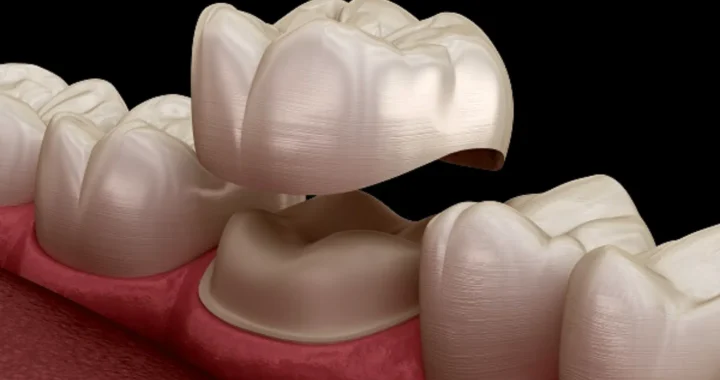5 Ways Cardiovascular Physicians Contribute to the Treatment of Heart Failure

Medical consultation. General practitioner refers to a model of a heart while discussing a patient's condition.
Heart failure is a debilitating condition that can profoundly impact your life, limiting your ability to perform even basic tasks. Fortunately, cardiovascular physicians are at the forefront of advancing treatments for heart failure, making a significant contribution to improving patient outcomes.
From diagnosis to the latest cutting-edge treatments, cardiovascular physicians play a critical role in the care of patients with heart failure. If you notice you have symptoms of heart failure, such as shortness of breath or wheezing, consider visiting your cardiovascular physician Frisco, TX, for an early diagnosis. This article will explore the five ways cardiovascular physicians contribute to treating heart failure.
Diagnosis
Cardiovascular physicians diagnose heart failure by evaluating your symptoms and medical history and conducting a physical examination. They may also order tests, such as an echocardiogram, to determine the underlying cause of your condition. Other tests may include electrocardiograms (ECGs), stress, and blood tests.
Based on the results of these tests, your cardiovascular physician can diagnose heart failure and determine the appropriate course of treatment. They may also evaluate your overall health and risk factors to develop a personalized treatment plan for your needs.
Medication Management
Cardiovascular physicians are vital in prescribing and managing medications for heart failure patients. These medications can help to alleviate symptoms, improve heart function, and slow the progression of the disease.
Several classes of medications that your cardiovascular physician may prescribe for your heart failure include ACE inhibitors, beta-blockers, diuretics, and inotropes. They may adjust your dosage or recommend other more effective treatments based on how you respond to these treatments.
Monitoring
Cardiovascular physicians are critical in monitoring your progress and adjusting your treatment plan. They will typically schedule regular follow-up appointments to assess your response to treatment and make any necessary changes.
During these appointments, your cardiovascular physician may perform physical exams, order laboratory tests, and conduct imaging studies to identify any changes in your condition. They will also discuss any new symptoms or concerns that you may have and provide education on self-care, including diet and exercise.
Device Therapy
Some heart failure patients may benefit from device therapy, such as a pacemaker or implantable cardioverter-defibrillator (ICD). Cardiovascular physicians can implant and manage these devices to help regulate the patient’s heart rhythm and prevent sudden cardiac death.
Your cardiovascular physician will work closely with you to determine whether device therapy is appropriate and, if so, which type of device is most appropriate for your needs. Once they have implanted the device, your physician will monitor you regularly and make adjustments to ensure it functions properly.
Referral to Specialists
As a heart failure patient, you may require specialized care from other specialists such as a heart failure specialist, electrophysiologist, or cardiac surgeon. Cardiovascular physicians can refer you to these specialists as needed and coordinate their care to ensure the best possible outcome.
Heart failure specialists may offer more specialized care, including advanced diagnostic testing and treatment options. An electrophysiologist may be involved if you have an arrhythmia or abnormal heart rhythm. You may require a cardiac surgeon if surgical intervention is needed to treat the underlying cause of your heart failure.
Cardiovascular physicians are vital healthcare team members when diagnosing and treating heart failure. Their knowledge, expertise, and specialized training enable them to develop personalized treatment plans that address your unique needs.
Cardiovascular physicians will remain at the forefront of this important work as you advance your understanding of heart failure and its treatment. Their contributions to the field are essential to improving the lives of millions worldwide affected by this condition.


 Innovations in Health Screenings: Exploring the Latest Technologies in Clinic Services
Innovations in Health Screenings: Exploring the Latest Technologies in Clinic Services  Dental Crowns –Restoring Strength, Function, And Aesthetics.
Dental Crowns –Restoring Strength, Function, And Aesthetics.  One-Person Wonder: Making Waves in the Massage Industry in Gunma
One-Person Wonder: Making Waves in the Massage Industry in Gunma  How Cataract Surgery in Nashville Improves Vision and Quality of Life
How Cataract Surgery in Nashville Improves Vision and Quality of Life  Maintaining Oral Health: The Role of Dentists in Richmond
Maintaining Oral Health: The Role of Dentists in Richmond  How to Choose the Best Implant Dentist in Sheffield: A Guide
How to Choose the Best Implant Dentist in Sheffield: A Guide